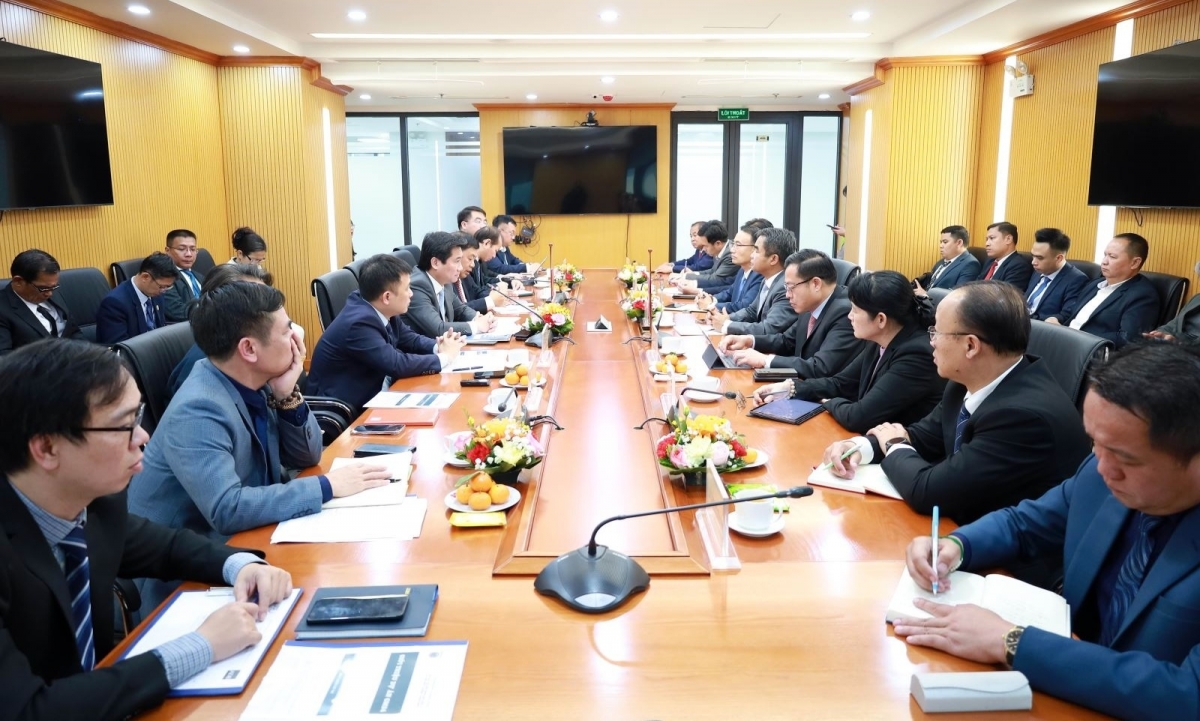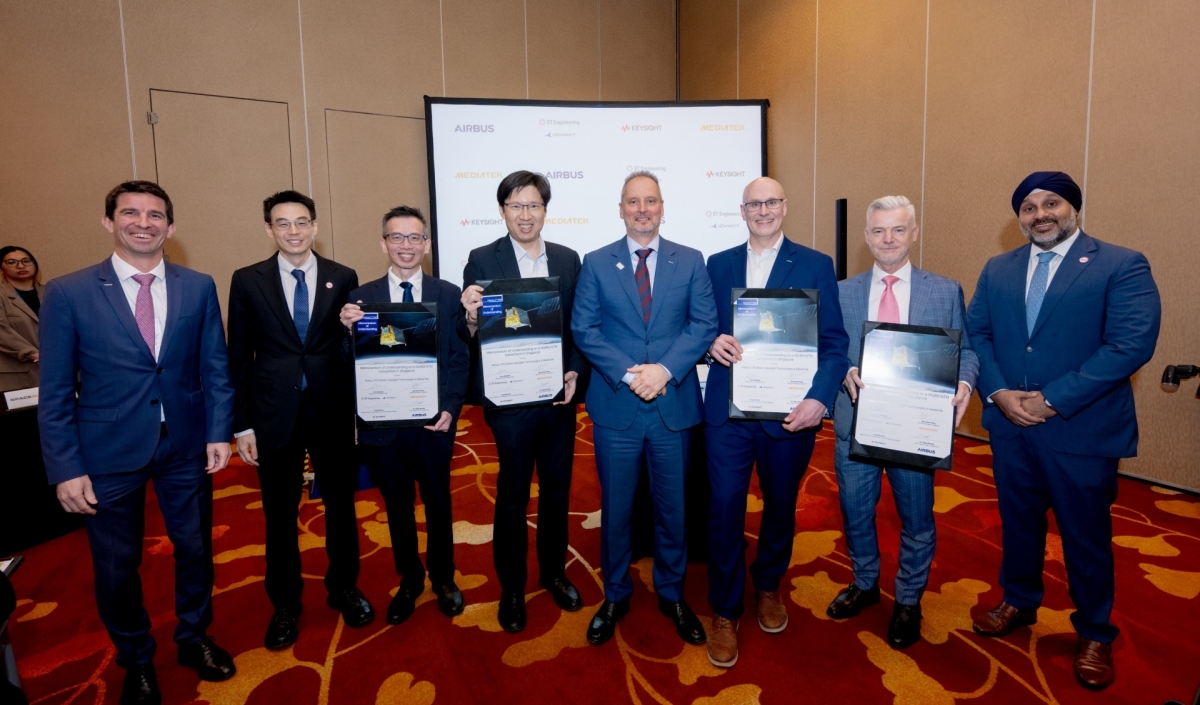INTERNATIONAL INVESTMENT
AND PORTAL
At a conference on non-tariff barriers (NTB's) hosted by VIR on June 27, business and industry association representatives from various points along the supply chain sketched out a shared picture of hidden costs, overlapping procedures, and the urgent need for regional synergy to boost intra-ASEAN trade.
As an international freight forwarding company handling hundreds of containers per day, T&M Forwarding is acutely aware of the costs and delays caused by documentation bottlenecks at border checkpoints. Chu Kieu Lien, the company's director, spoke of the enormous costs that the logistics sector is shouldering due to uncoordinated or inconsistent procedures.
"A refrigerated container stuck in the yard can incur storage fees of $80 to $120, a hundred times higher than a dry container. Repeated hygiene inspections or redundant technical requirements from multiple ministries can easily erode the already-thin profit margins of small businesses," she said.
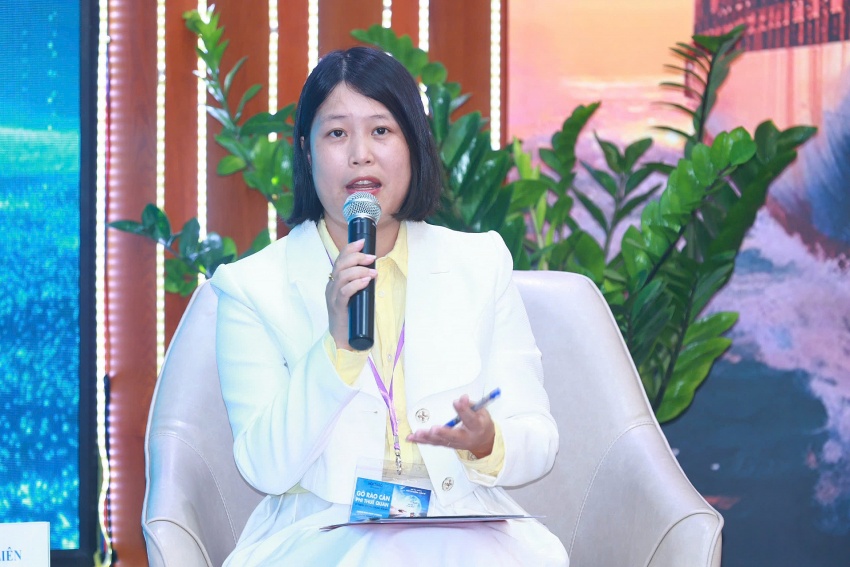 Chu Kieu Lien, director of T&M Forwarding. Photo: Chi Cuong
Chu Kieu Lien, director of T&M Forwarding. Photo: Chi Cuong
In maritime logistics and port operations, Lien identified three primary impacts of non-tariff barriers.
First, NTBs significantly raise operational costs. Complex and inconsistent requirements for quality inspection and labelling across markets force businesses to invest more heavily in internal compliance systems, personnel, and documentation.
Second, supply chains are disrupted by prolonged inspection procedures, ranging from plant and animal quarantine to cargo security screening at ports or extended customs clearance processes in certain countries. Delays in cargo release directly affect vessel schedules, port utilisation efficiency, and the reliability of logistics services.
Third, new environmental and greenhouse gas emission regulations are adding another layer of barriers. Shipping firms are now compelled to upgrade their fleets, switch to cleaner fuels, or purchase carbon credits, a financial and technological burden not all companies can shoulder.
Lien cited the Vietnam Logistics Business Association, which reports that Vietnam’s logistics costs currently account for up to 18 per cent of GDP, significantly higher than the global average of 10.6 per cent, largely due to non-tariff barriers.
"Customs infrastructure remains cumbersome and lacks synchronisation, making the licensing process particularly difficult for small and medium-sized enterprises (SMEs) in Vietnam, which already face limited financial capacity and struggle to access digital transformation solutions," said Lien. "Moreover, administrative procedures are inconsistent, and the absence of a streamlined information system prolongs processing times and hinders operational efficiency. These are common challenges across the ASEAN region."
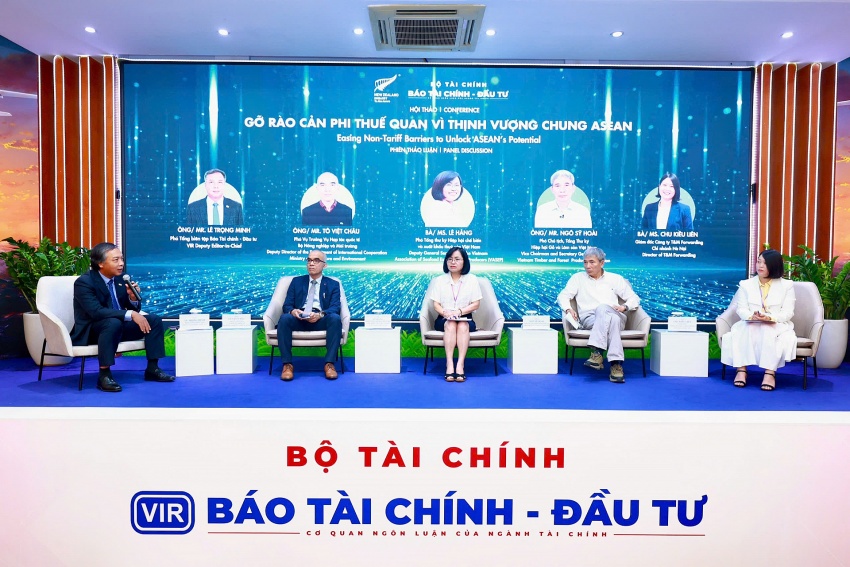 Photo: Chi Cuong
Photo: Chi Cuong
Ngo Sy Hoai, vice chairman and secretary general of the Vietnam Timber and Forest Product Association, noted that while wood products are not subject to many NTBs, they still bear indirect consequences as clients of logistics providers.
"Vietnam ranks second in the world in wood processing, yet its competitiveness continues to be undermined by high logistics costs and inconsistent environmental regulations," said Hoai. "Furniture is bulky and costly to transport. Alongside the wave of trade liberalisation, the resurgence of protectionism and mercantilism is creating new obstacles for businesses, especially SMEs. Amid such challenges, ASEAN countries need to stand together, enhance policy coordination, and proactively develop shared standards to strengthen regional trade resilience and expand exports sustainably."
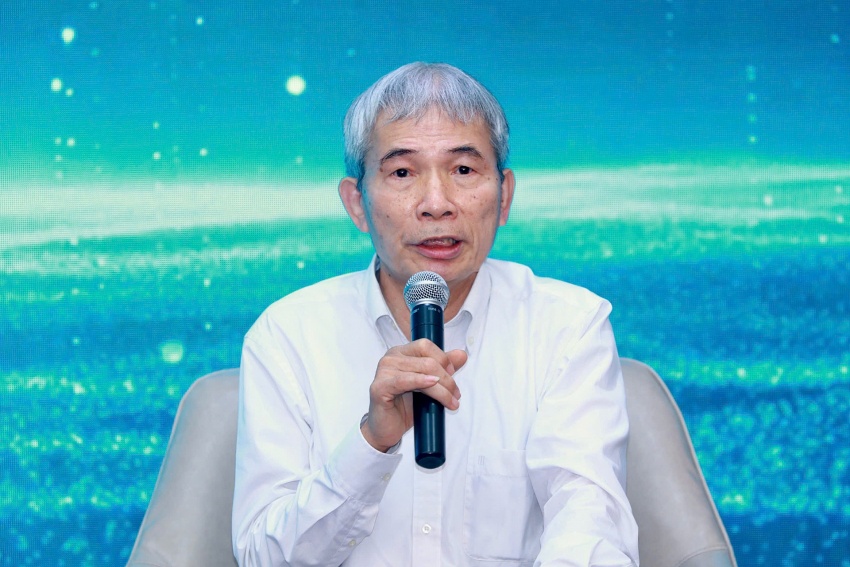 Ngo Sy Hoai, vice chairman and secretary general, Vietnam Timber and Forest Product Association. Photo: Chi Cuong
Ngo Sy Hoai, vice chairman and secretary general, Vietnam Timber and Forest Product Association. Photo: Chi Cuong
Hoai expressed hope that ASEAN would soon establish a common set of standards for adhesives, oils, and emissions, helping build mutual trust within the bloc and present a unified voice when negotiating with the EU and US markets.
"Even before facing NTBs, Vietnam’s wood sector had already been suffering from various tariff measures imposed by foreign countries. This is the moment for us to refocus on the intra-ASEAN market as a strategic buffer against external shocks," he said.
"Instead of passively accepting external requirements, ASEAN countries should proactively communicate that we are improving, aligning with international standards, and ready for deeper integration. Domestically, regulatory frameworks pose few problems, but internationally, effective dialogue and mutual understanding between authorities are essential to ensure smoother market access for Vietnamese exports," Hoai added.
From the industry’s perspective, Le Hang, deputy general secretary of the Vietnam Association of Seafood Exporters and Producers (VASEP), said the ASEAN market serves as a critical buffer for Vietnam due to its geographical proximity and shared consumer needs.
However, she noted that key markets like Thailand and Malaysia impose strict technical barriers on imports.
"For instance, some ASEAN countries require specific labelling formats, such as detailed product descriptions, nutritional information, origin, and the use of local languages, such as Bahasa Malaysia in Malaysia or Thai in Thailand. Reconfiguring labels to meet such requirements can cost between $5,000 to $20,000 per product line, depending on the complexity of redesign and translation, which is a heavy burden for SMEs," explained Hang.
 Le Hang, deputy general secretary, VASEP. Photo: Chi Cuong
Le Hang, deputy general secretary, VASEP. Photo: Chi Cuong
Hang also highlighted that for Halal certification, which is mandatory in major markets like Indonesia and Malaysia, Vietnam still lacks widely recognised certifying bodies within ASEAN.
"There are currently only two Halal certification bodies in Vietnam recognised by ASEAN partners, which is far too few. This makes the certification process costly and inaccessible for many businesses. A mutual recognition mechanism among ASEAN countries is urgently needed to reduce costs, streamline procedures, and allow more Vietnamese enterprises to penetrate high-potential markets in the region," she added.
"One of the core messages that VASEP aims to promote among members and seafood enterprises is to be proactive and adaptive. To gain greater recognition, businesses must stay ahead of market trends, adapt to regulatory changes, and respond to shifting supply and demand. This requires regularly updating strategies, enhancing operational capabilities, and adopting innovative technologies to meet the needs of diverse market segments," added Hang.
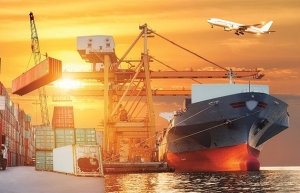 ASEAN seeks to broaden trade outlook
ASEAN seeks to broaden trade outlook
ASEAN is bolstering intra-bloc trade and fostering fair markets where non-tariff barriers are set to be trimmed, in which Vietnam is strengthening links with regional peers.
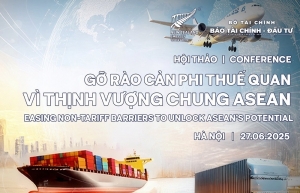 ASEAN non-tariff barriers in focus at VIR conference
ASEAN non-tariff barriers in focus at VIR conference
A conference to discuss non-tariff barriers in the ASEAN region, held by VIR in collaboration with the New Zealand Embassy, will take place on June 27 at VIR’s headquarters, 47 Quan Thanh street, Ba Dinh district, Hanoi.
 Time to dismantle non-tariff barriers within ASEAN
Time to dismantle non-tariff barriers within ASEAN
Nearly two decades after the ASEAN Economic Community was first envisioned, Southeast Asia’s regional trade still has not reached cruising speed. While tariffs have been largely eliminated under the ASEAN Trade in Goods Agreement, intra-regional trade remains stuck at just over 21 per cent of total the bloc’s trade. It is pointed to a less visible but more stubborn obstacle: non-tariff barriers (NTBs).
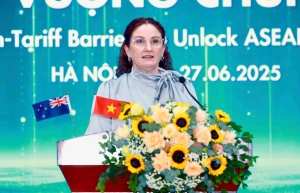 'Shared vision' driving Vietnam–New Zealand economic partnership
'Shared vision' driving Vietnam–New Zealand economic partnership
With shared goals, complementary industries, and a regional trade framework in place, Vietnam and New Zealand are well-positioned to enter a new era of inclusive and sustainable economic growth, writes Caroline Beresford, New Zealand Ambassador to Vietnam.
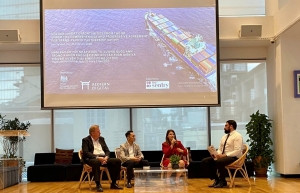 Trade agreements bring significant non-tariff benefits
Trade agreements bring significant non-tariff benefits
Trade agreements like the Comprehensive and Progressive Agreement for Trans-Pacific Partnership (CPTPP) and the Vietnam-UK Free Trade Agreement (UKFTA) bring many significant non-tariff benefits to businesses.






